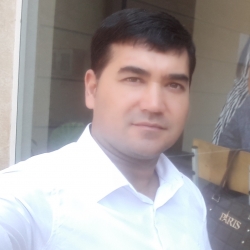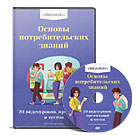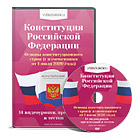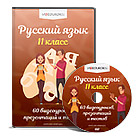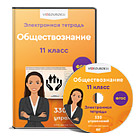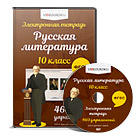Abdullah Avloni's life and work and his contribution to the art of music.
Annotation: It is known that at the beginning of the XX century theatrical troupes of different nationalities, in particular, Tatar, Armenian, Azerbaijani, Russian artists came to the big cities of Turkestan (this was widely covered in the press of that time). Under their influence, Abdullah Avloni became one of the leaders of the European-style Turon troupe (1914), the foundation of Uzbek theatrical art. In this article, the author focuses on the life and work of Abdullah Avloni and his contribution to the art of music.
Keywords: Central Asia, last century, written drama, artist, music, musical art.
Abdullah Avloni, one of the great representatives of the Jadid movement, literature and art, who played an important role in the socio-political and cultural life of Central Asia, promoted the development of national theater and music, rescuing our people from spiritual poverty, raising national culture. He is one of the most active figures in the field.
At the beginning of the last century, Abdullah Avloni (1878-1934) was a poet, playwright, actor, translator, music collector, journalist, supporter of advanced European science and culture, as well as a figure of the Renaissance. . Although many popular scientific articles and works have been published on his contribution to written drama and theatrical art, very little has been written about the artist's attitude to the art of music. However, like all modern intellectuals, he made a worthy contribution to this field. His poems, articles, and poems included in the two-volume Selected Works provide a basis for this. The author's works show that his artistic and aesthetic views were very high, in particular, his devotion to the art of music from a young age, and this devotion began when he first became involved in the theatrical movement, especially during his time in the troupe "Turon". `shows.
It is known that at the beginning of the XX century theatrical troupes of different nationalities, in particular, Tatar, Armenian, Azerbaijani, Russian artists came to the big cities of Turkestan (this was widely covered in the press of that time). Under their influence, Abdullah Avloni became one of the leaders of the European-style Turon troupe (1914), the foundation of Uzbek theatrical art. He wrote in his article "The Debate on Theater" about the influence of theatrical art on the minds of the people: "Theater is a mirror that seeks to eradicate the bad traditions and customs of every nation, to correct itself" (Avloni A. Selected works. Volume 2. Volume 2. T .: Spirituality, 1998. P.221.), - says. Avloni got acquainted with advanced Turkish and Azerbaijani, Tatar dramaturgy, translated the best works, including Jalil Mamadqulizade's dramas "Dead", "A form of home education", "Ignorance" into Uzbek, devoted himself to the troupe as a director and actor. took part. If you look through the newspapers and magazines published in Tashkent and Fergana in 1914-1916, you will find many interesting articles about the troupe's activities, Avloni's directing and acting skills.
Undoubtedly, Avloni played an important role in the first steps of the "Turon" troupe. His influence on the formation of the troupe's repertoire and musical decoration is obvious. From the first steps of the theater, a great place was given to the art of music. The troupe's press releases confirm this idea. It is even surprising that in one of the announcements during the break it was announced that Sultankhan tanburchi (the most influential tamburshi of this period) would perform various exercises.
Due to his active involvement in this process, Avloni became deeply aware of the place and role of music in human, social and theatrical art. This feature was further developed during his participation in the staging of U. Hojibekov's opera "Layli and Majnun" as an actor and choirmaster in collaboration with Siddiqi Ruhullo (Famous Azerbaijani House. He was in close contact with Turkestan artists). He also met with many hafiz and musicians, learned the genres and ways of national music, enriched his spiritual treasury with the names and melodies of national melodies, and became accustomed to critical observation of art. Like all modern intellectuals, he recognized the importance of the art of music in human education, especially in the education of young people. His article "Sanoyi 'nafisa", published in the first issue of the magazine "Revolution" in 1922, proves our point in every way. According to Avloni's popular opinion, people in ancient times called "the first steps taken by the human industry in the world", "could not stop the influence and feelings in their hearts and did not lie quietly, were not satisfied with what was achieved", "created by nature and Those who have begun to examine carefully the living and non-living things that they have created and created.
"The leaves of the tree are awake,
The nature of every leaf is life »,
That is, every green, leaf, and tree in the eyes of the vigilant (people) says that it is the leaves of a different world (Avloni A. Selected Works. Vol. 2, Vol. 2. T .: Spirituality, 1998. p. 235). The author emphasizes that the birth of the art of music is a simple imitation of nature.
It is known that in ancient times, people have always compared the events of life and nature, changes and processes in the environment to their own lives. The beauty of nature was perceived with original simplicity. Avloni has a correct approach to the analysis of the so-called "period of imitation", "period of folklore" in the scientific literature. He describes the period of imitation as follows: "In the spring, when the pleasant sounds of birds singing intoxicated in the midst of flowers came to their senses, they also involuntarily tried to imitate the sounds of these birds, to sing like birds." With this example, the poet says that the desire for beauty, music, creativity, the creation of a unique melody in the human heart, and the music that gives rise to this tendency and its awakener, the bride of the seasons, is spring. Describing the period, he said: “They also began to sing. This period is called the literary period of industrial elegance. ”
Emphasizing the gradual transition from imitation to the real era of creation, Avloni said, “The latter arts (more than the former) are more important and better than the previous ones, and it is everyone's destiny to be influential. "It wouldn't have happened." Therefore, he says that not everyone can be a real artist, and for this a person needs real talent.
In both cases, the role of music is largely determined by the period of transition from imitation to oral creation, and then to real art, that is, the period of literature. He said, "If they described the days of joy (i) with songs of joy, they would express the days of sorrow (i) with songs of sorrow." That is, he does not forget not only the social but also the philosophical aspects of music.
In ancient times, the Avloni said that the human voice was the first musical instrument, and that the ancients "informed their other friends that they were separated from their beauties, their loved ones, their possessions." He explains the reasons for the emergence of lyrical music. He also speculates on the creation of the first musical instruments, albeit a small one: "He saw the intestines of animals hanging from the branches of trees under the influence of air, and under the influence of the wind he" heard " The sound of "ir" touched his heart and welcomed him. He says that the art of music has entered a new stage in its development, saying that they "made a" net "out of the intestines of animals to accompany their songs and chants." "It turned out to be the most elegant, the most important, the most spiritual art," he said. But when they brought these arts out of scrutiny and grief, they left us as a monument and died of their own accord, ”he said, referring to the rise of music from simple imitation to the level of creativity and true art. At ", its creators-composers have passed away without a name. He refrained from showing the period clearly, pointing to the fine arts of the Middle Ages, and began to sing the national anthem of our national music, which began with the words: mentions the poem. In his short article on the origin of the art of music, Avloni makes many interesting observations and draws mostly correct conclusions. It reminds us that music began with a simple imitation of nature, the origin of the main genres of music, namely seasonal, domestic and lyrical songs. In a poem entitled "Music", which he wrote because he was passionate about music, he details the power of music.
Nagma is your tired body, your holy words,
When Rukhbakhshodur shouts, your eyes of hijran.
Avloni depicts music in a beautiful image that breathes life into a dead body. The sound of music subdues the human soul, makes it a fan, plays a thousand souls. Whoever hears the sound of music once in his life will be a martyr forever. Art brings joy to the human heart and captivates it. Thousands of souls are affected by the fountain of music, and the "dead hearts", that is, the dead hearts, are also healed and resurrected. Avloni believes that the soul of a person who understands and enjoys art is pure and does not change for the worse. At the same time, the poet agrees with the concept of "catharsis" of the ancient Greek philosophers, emphasizing that music has the power to purify and nurture the human spirit and spirituality.
Whoever slaughters the eternal secret of your genius,
Nagman is an open-minded person.
That is, music is a miracle that is directly related to the divinity. Who told man the secret of the Creator? Of course not. Because nagma opens the minds of the people, heals the sick body of souls and society, repairs the veins of the soul. The reason is that the musician (musician, composer) utters the word of divine purity and strengthens the body of man and society, because the words of Hijran (one of the poet's nicknames) are a melody that heals the soul of a sick people.
In his poem, Avloni not only describes the divine power of music, but also uses various musical terms: “some” - means listener, hearer; «Tarannum» - melody, melody; "Takallum" - a song, a song; "Nagmasoz" - songwriter, composer. The writer perceives music not only as an art, but also as a holistic phenomenon related to philosophy, religion, medicine and the universe in general. His ideas and concepts about the powerful influence of music on the human spirit and spirituality, its important role in education are common to all modern intellectuals and are in line with the ideas of musicologists of the ancient East.
There is a lot of interesting information about the importance of educating young people in the multifaceted work of Abdullah Avloni. As one of the leading figures of our nation, Avloni deeply understood that the future of the Motherland depends on the upbringing of young people, and that their spiritual perfection determines the cultural level of the new society. In 1904, along with many enlightened intellectuals, he opened a new school in Mirabad mahalla. From 1916 he taught music at his school. "The last discovery of that time was not without a gramophone," recalls Yu. Tohiri, a former student of the school (Avloni A. Tashkent morning. T .: 1979. p. 10). It is possible to imagine what melodies and songs the children of Turkestan listened to at that time and how much such a "visual weapon" influenced them.
Avloni's deep understanding of the art of music can be seen in the fact that he wrote many of his poems in accordance with popular folk songs, melodies on maqom tracks, and arias from popular Azerbaijani operas of his time. For example, his poem "School Advocacy" was written to the tune of "Latifa". He quotes from the text as saying that one of our national melodies is "Agajon latifa, gulistan latifa", "Play on the branch, sing on the leaf, garden anecdote" so that the performers do not suffer. The second byte is recited by one or two people, and then the second byte is recited by many people, accompanied by words, ”he warns and warns against it.
He also reminds that the poem "Saodatshundadir" was written from our national melodies "+ oshg'archa", "Anorkhon yorima". In short, the poet gives information about the fact that he wrote many poems in ready melodies and explains his ways of performance: The poem "Milliy nagma" is one of the eastern melodies in the opera "Shah Abbas" - "Tasnif", "Hafizdan" - To the song "Bayoti sheroz", to the song "Hatred from anger" - to the song "Dugoh", to the song "Oh, my blood" - to the song "Truth", to the song "Munojot" - to the song "Segoh", "Usqudor", "Ilma targib" - from the opera "Layli and Majnun" to the east "O poor lady". The poem "About the wedding" is based on the song "Reza", while others are based on folk songs "Yor-yor".
It is known that in various regions of Uzbekistan among the ceremonial songs of our people "Yor-yor" is very common and performed in a unique way. In fact, the melody of the songs "Yor-yor", which is associated with the wedding ceremony, has a lyrical tone and covers various topical issues of everyday life of the people in a comparative way. We can observe this even today. "Yor-yor" songs have their own style of performance. Avloni also skillfully used the method of comparison, comparison and tone of "Yor-yor". That is why his social poems written in this genre reached the hearts and minds of his contemporaries through musical melodies. It is no exaggeration to say that he played an important educational role in the spiritual upbringing of students and listeners.
In addition to the above-mentioned national melodies, the artist used traditional religious song genres such as "Na't", "Munojot" and "Hamd" to place his socio-political and enlightenment ideas in the hearts of readers. . The genres of "Nat" and "Hamd", which glorify Allah and His last prophet, have a special place in the literature of the peoples of the East, and especially in Uzbek, Tajik and Persian literature. It is customary to have fragments (chapters) praising God at the beginning of each major work of art. Nat and Hamd are religious music genres written in a dream style. These works are in harmony with the genre of poetry and were performed at weddings and parties (concerts). The melodies of "Nat" and "Hamd" are in unison and are performed to the accompaniment of tanbur between the song and the recitation. The emphasis is on the content of the word and affects the listener's emotions. Avloni took this into account and used them extensively in his poetry collections. That is why every page of his collection of "Literature or National Poems" begins with "Praise" and "Nat". Several of Avloni's poems are called "Nati Hazrati Rasuli Akram", "Hamd", "Nati sarvari alam", "Mustahzod". Although these poems contain descriptions, hymns and supplications dedicated to Allah and His last prophet, the poet also assigns them the social responsibilities of his time. This is why the performance also implies a choir. Accompanied by music, the method of singing in a choir has its own educational and medical features: when singing as a group, a person feels the music with his whole body and involuntarily enters the creative process, his psyche is free from any conditions and they achieve exaltation and freedom. This type of performance is a very useful and effective way to master the art of music, to enter it directly, in the field of music education.
It is known that at that time many new methods were taught in schools, training courses, music lessons and the development of theatrical art. Poems of Tavallo, Haji Mu'in and Avloni about morality and etiquette and love for the Motherland were recited and recited in such institutions. The article "Muslim theater in Andijan" published in the newspaper "Sadoi Turkiston" on June 20, 1914 confirms our opinion. The article reads: "After the theater, all the players with local music read Abdullah Avloni's" Let's Read Our Youth "on stage and won the applause and praise of the people." Similar reports can be found in the Tashkent and Fergana press of 1914-1916. In general, the performance of new works of poetry in certain melodies was widespread in the cultural life of that time. Irrigated with the ideas of Jadidism, the themes of new content, enlightenment, morality, etiquette, calling for nationalism are popular among the people, mainly folk songs and lapars, ufors on the way to status, Turkish marches, Tatar melodies. It is customary to perform in the morning. “The young people who appeared on the stage read the most meaningful poems of the famous poets Tukoev and Said Ramiev alone (in a solo way - B.M.). In the meantime, seven people played complex national music (i.e., a small orchestra - B.M.), ”reads the January 15, 1915 issue of the Sadoi Turkiston newspaper.
One of the most tragic events in our history was the issuance in the summer of 1916 of a decree of the Russian tsar on labor in Siberia. It is known that this event provoked the anger and dissatisfaction of the people in all regions of the country and led to riots. Songs against labor and the white king became popular among the people with simple and popular melodies. Jadid intellectuals were outraged by the brutal massacres perpetrated by the colonialists. A.Avloni also contributed to the poetry of labor by creating the series "Song of laborers" (this work was published in Tashkent in the lithography of Gulom Hasan Orifjonov in 1917). The collection includes "Words of a laborer's father to his son", "Words of a mother to her son", "Words of a son to his mother", "Words to his wife". », Which are impressive and full of pain, and are written in a melodic and lyrical way. The author himself calls it "the 6th volume of the" Literature "complex, written in several new melodies", but does not say anything about which new melodies he is talking about. The foreword to the book states that the poems were suppressed in connection with the 1916 labor incident and were recited by the Turon gang (ibid., P. 375). In the new edition: “The first group sang in various anecdotes by a special group“ Turon ”at the theater in Tashkent during the performance at the exit to send workers. Collected and published at the request of many people. And the poems written by several other poets have been added to this literature with their permission ”(Avloni A. Selected Works. Vol. 2, Vol. 1, T .: Manaviyat, 1998, p. 248). This means that since the formation of the Turon troupe, Abdullah Avloni has written many poems dedicated to him and adapted to certain melodies. Avloni himself chose melodies for all the songs. These poems may have been sung in the form of folk songs that were popular at the time, such as "Running the Train", "Nicholas the Bloodthirsty", and "The Story of the Workers".
Abdulla Avloni enriched the content and form of traditional genres of Uzbek poetry in his collections "Literature or National Poems", "Singing of Workers". It brought them a new meaning and, more precisely, the sounds of the pulpit. These poems are distinguished by their clear meaning, brightness, simplicity, expressiveness, musicality. The poem "Address to the Nation", written in 1914, is described as "written from Eastern melodies to the song", "Say a beautiful Arab". Oriental melodies are Turkish marches that were popular among our people during the Avloni period.
Avloni greeted the February Revolution of 1917 with the hope that it would bring freedom and liberty to the peoples of Turkestan, and wrote many marches ("Orientals"). However, like many intellectuals, he quickly lost faith in the "bright future" of his people and homeland, and suffered, saying, "I heard the name of freedom, but I did not see justice."
Kilur from us, O people of the Motherland, cry Turkestan,
Everything was prosperous, Turkestan was not prosperous. (Ibid., P. 116)
The poet, who lived with the dream of seeing his homeland as one of the most developed countries in the world without pursuing his own interests, understood and promoted the need to find a way to the heart of everyone through culture and art. Avloni writes in his article "Waves of Culture": "Culture has been chasing us for half a century now. We will flee from side to side, the hardships of life will attack us, ignorance and ignorance will come and oppress us, and then misery, poverty and heresy will come our way. ” The only way to get rid of this situation is to accept the culture and enter the real culture. Therefore, the poet deeply understood the role and place of theater and music in the formation of this culture and sought to bring it to the attention of the people. This is evidenced by his views on art, especially music.
It is extremely difficult to cover Avloni's artistic and aesthetic views, his attitude to music in the volume of one article. However, this concise approach alone gives grounds to say that the writer was one of the scholars and treasurers of traditional national music.
List of used literature:
1. N.Yuldasheva. Uzbek music literature. Study guide-2016
2. A.X.Trigulova. Foreign musical literature. Study guide-2016
3. T.Ye.Solomonova, 0 ‘History of Uzbek music. -T., 1981.
4. I.Rajabov, On the issue of status. -T., 1963.
5. O.Matyoqubov, Authority. -T., 2004.




